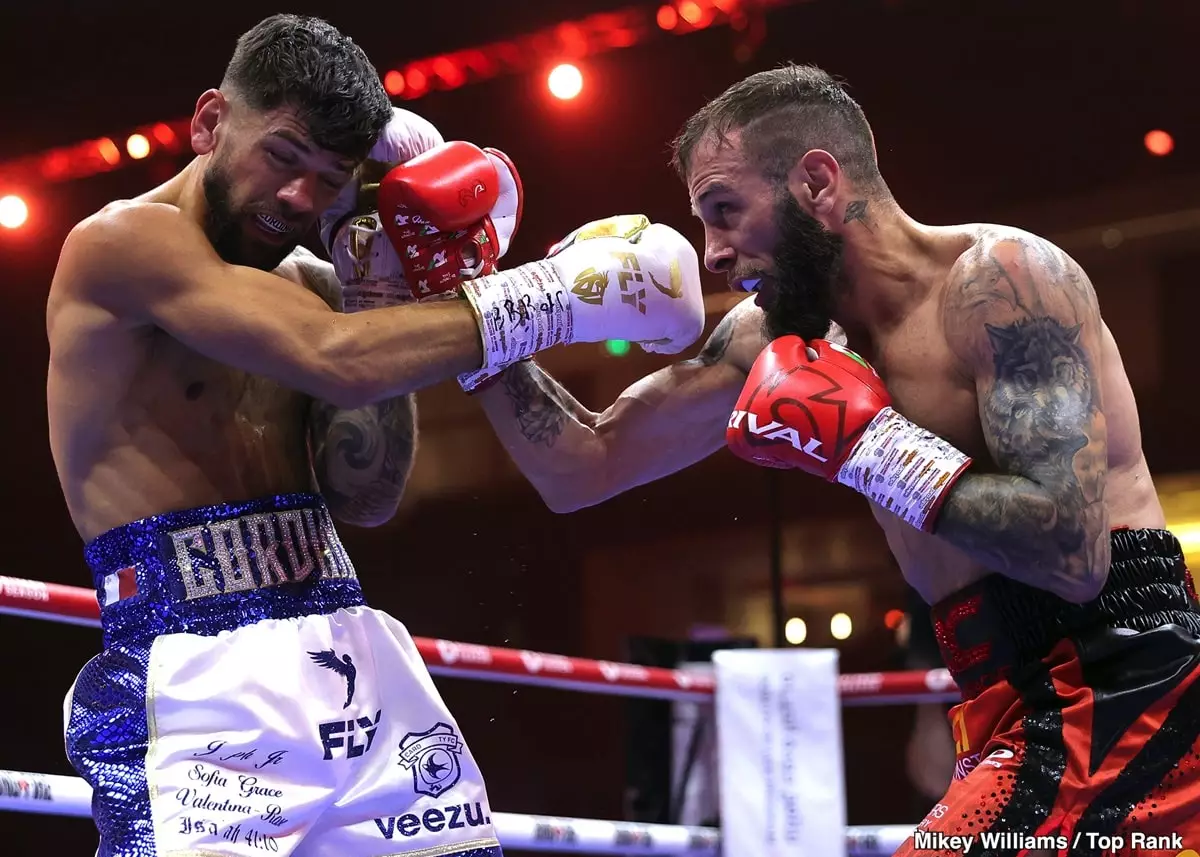The boxing world often finds itself in turmoil due to the decisions made by fighters and promoters alike. Recently, Eddie Hearn, a prominent promoter, expressed his outrage upon learning that Anthony Cacace would vacate his IBF super featherweight title instead of defending it against his mandatory challenger, Eduardo “Sugar” Nunez. Hearn had high hopes for Nunez, who boasts an impressive record of 27 wins, all by knockout. This scenario illustrates the frustrations within boxing regarding title defenses and the pressure on fighters to make commercially viable choices over competitive ones.
The decision from Cacace, who has only one loss in his professional career, highlights a broader issue in boxing—fighters tend to sidestep challenging bouts that could undermine their marketability or lead to detrimental outcomes. Cacace’s planned match against former WBA featherweight champion Leigh Wood raises questions about his motivation; is he genuinely seeking to advance his career, or is he more focused on financial assurances from safer matchups?
Nunez: The Fighter Being Shortchanged
Eddie Hearn’s frustration is palpable, especially as he believes Nunez was unjustly treated by Cacace’s decision. During a recent interview, Hearn voiced his disappointment, noting that Cacace is essentially ducking a challenging fight against a dangerous opponent. He contends that the integrity of title reigns is supposed to include defending the title, thereby giving challengers the opportunities they deserve to climb the ranks. Hearn suggested that Cacace’s choice has not only impacted Nunez’s career but also reflects a troubling trend where fighters prioritize financial stability over the essence of the sport—competition.
Cacace’s decision could be seen as tactical. With a potential loss against Nunez looming, it would make strategic sense for him to pursue less dangerous fights that still promise a good payday instead of risking his reputation and title. This raises an ethical consideration in boxing: How should fighters balance the urgency of financial security with their responsibilities as champions?
Cacace’s upcoming fight against Wood is positioned as a significant event in the UK, even though it lacks the intrigue that a fight against Nunez would have generated. The delay in Cacace’s action to vacate the belt has implications beyond his personal career; it impacts the broader boxing community by drawing attention away from other competitors. Hearn’s comments reflect a frustration shared by many within the boxing world, where the essence of sport can often become overshadowed by the business.
DAZN, a major broadcasting platform, will surely capitalize on the regional interest tied to the Cacace-Wood matchup, reaffirming the notion that financial considerations often trump competitive integrity. Fans will tune in primarily for the nostalgia of seeing familiar faces rather than the excitement of a title fight, further diluting the competitive landscape of boxing.
Cacace has indicated a desire to make significant fights that resonate with boxing fans, seeking to establish a legacy that goes beyond mere title possession. He emphasizes that financial stability for himself and his family is paramount; however, the contradiction remains—how can a fighter solidify a legacy if their path does not include challenging the best in their division? Vacating a title while seeking lucrative but perhaps less meaningful bouts serves to undermine the historical narratives that accompany championship reigns.
The statement Cacace made on social media, emphasizing that he desires big fights regardless of the title on the line, is ironically poignant. It reveals an internal conflict within the sport: Can a fighter truly achieve greatness without embracing the risk that comes with defending their title against formidable opponents?
Boxing is at a crossroads where promoters and fighters grapple with the balance of securing financial futures while maintaining the integrity of competition. Hearn’s outcry reflects a sentiment that resonates with many supporters of the sport who cherish the heart and grit encapsulated in challenging matchups. As fans await announcements regarding Cacace’s next steps, they must ponder the future landscape of boxing—can it thrive when champions opt for security over spirited competition?


Leave a Reply